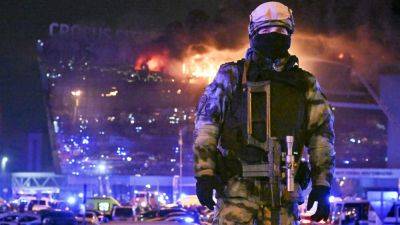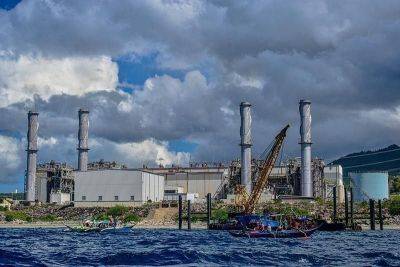Stormclouds gather over EU's Green Deal
BRUSSELS, Belgium — The EU's Green Deal -- once a core Brussels mission -- is looking increasingly under threat in the bloc's upcoming elections as resistance grows to its costs and consequences.
Farmers' protests, consumer cost-of-living worries and some countries' hesitation are already undercutting the ambitious plan to make the European Union carbon-neutral by 2050.
"The European Green Deal is our new growth strategy," European Commission chief Ursula von der Leyen announced back at the start of her mandate in 2019, as she unveiled dozens of pieces of legislation to meet climate targets agreed by EU member countries.
Five years on, the tone has changed.
Now, industry and farmers denounce the new "burdens" being piled upon them. Member states, including France, are calling for a "pause" in further measures.
"This backlash is centred on the agricultural area. It's not been true for energy, industry, transports," argued Pascal Canfin, chair of the European Parliament's environment committee.
He blames what he calls a "polarisation strategy" by right-wing parties.
Many of the Green Deal's laws have been adopted: an end to selling internal-combustion engine cars by 2035; a border carbon tax; rules against importing goods from deforested zones.
But momentum stalled last year with legislation to reduce chemical pesticides and to restore wilderness ecosystems -- opposed on grounds they could undermine food production in the bloc.
The biggest group in the European Parliament, the conservative European People's Party (EPP), from which von der Leyen hails, has made the shift an electoral gambit.
"It's easy to fix a figure. But it's more difficult to really make the transition happen in industry and also with the citizens," said a German EPP lawmaker, Peter Liese.
Farmland and forestry "should be protected much more" and farmers should not be seen "as an enemy of climate policy", he said.
The climate crisis is becoming "a real identity politics issue" caught up in the farmers protests, said Susi Dennison, of the think tank the European Council on Foreign Relations.
It is being cast as "an either-or choice -- between either you do climate, or you are concerned about the






